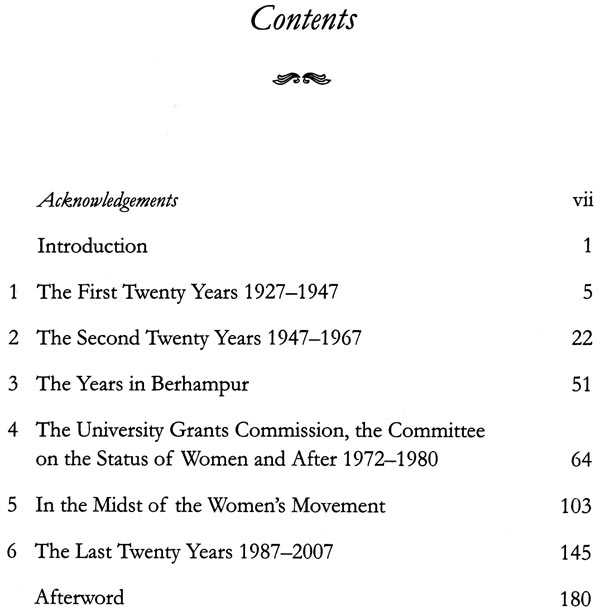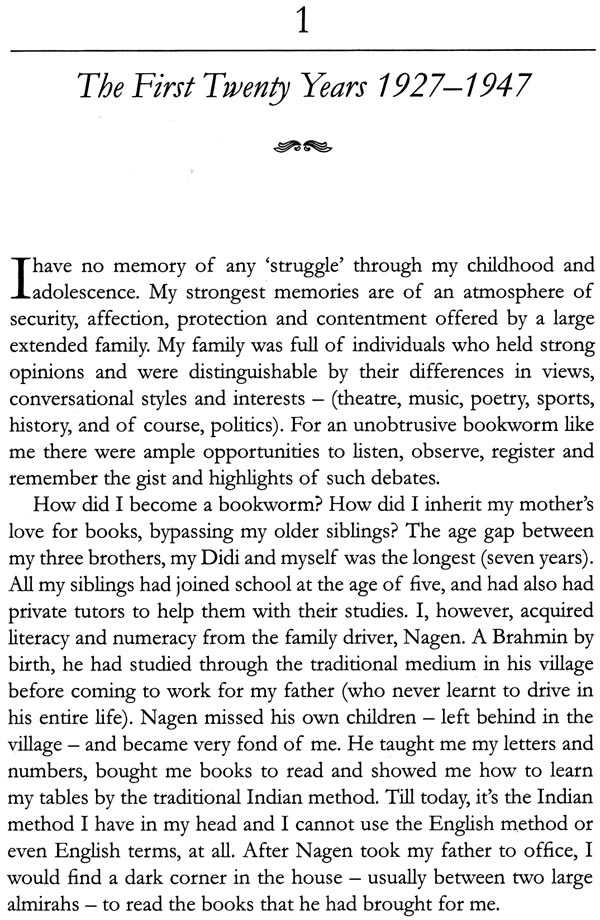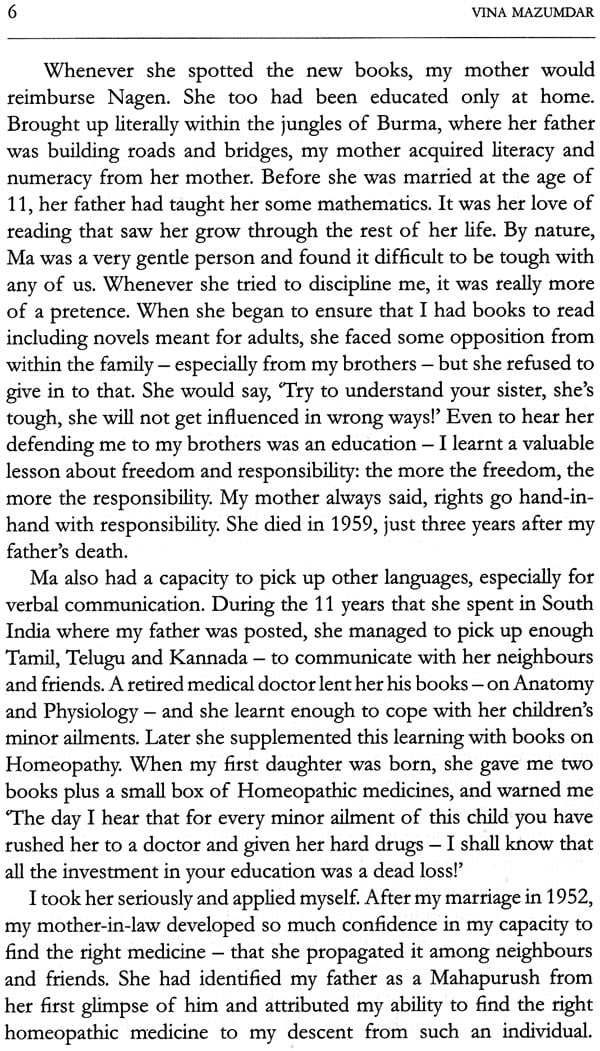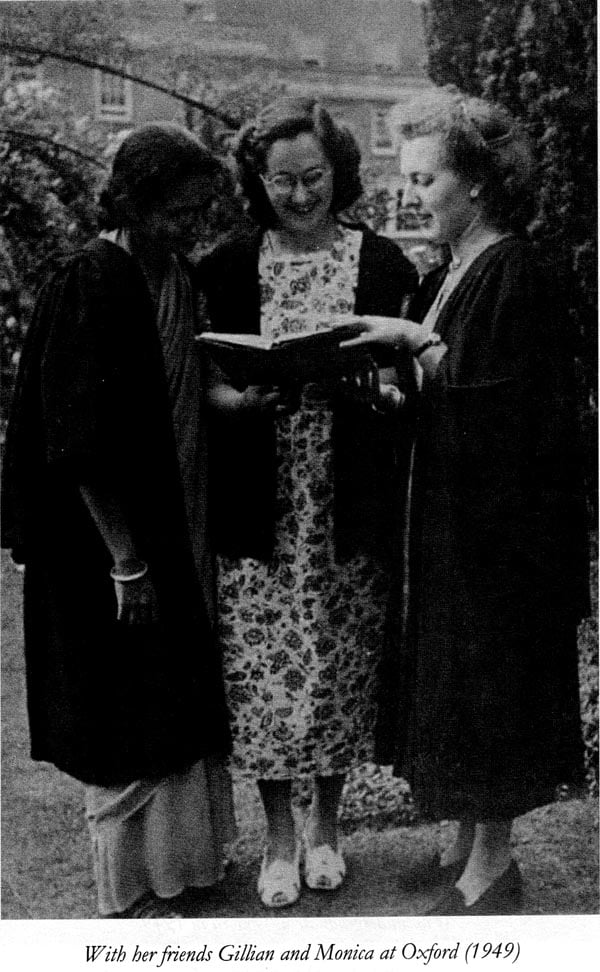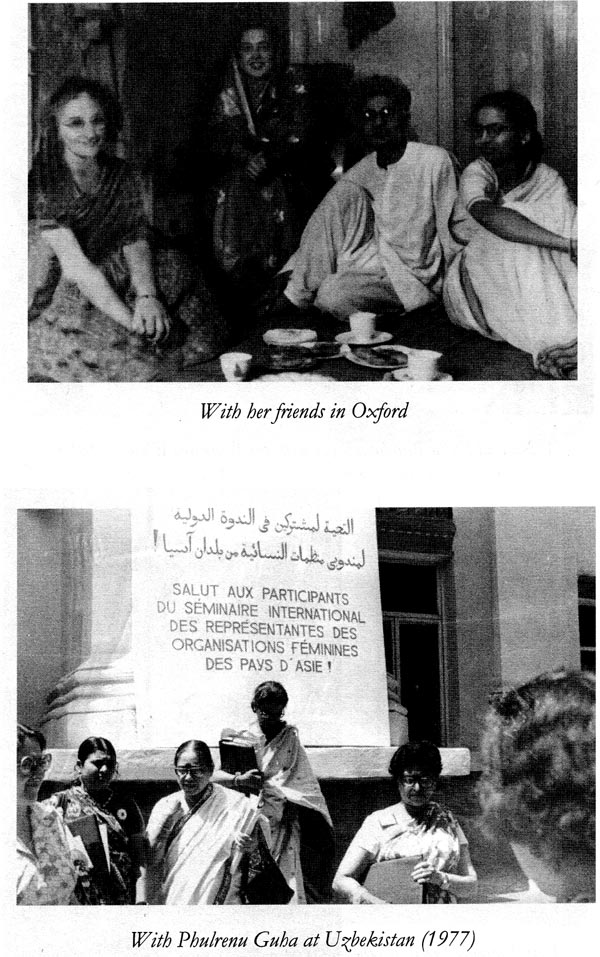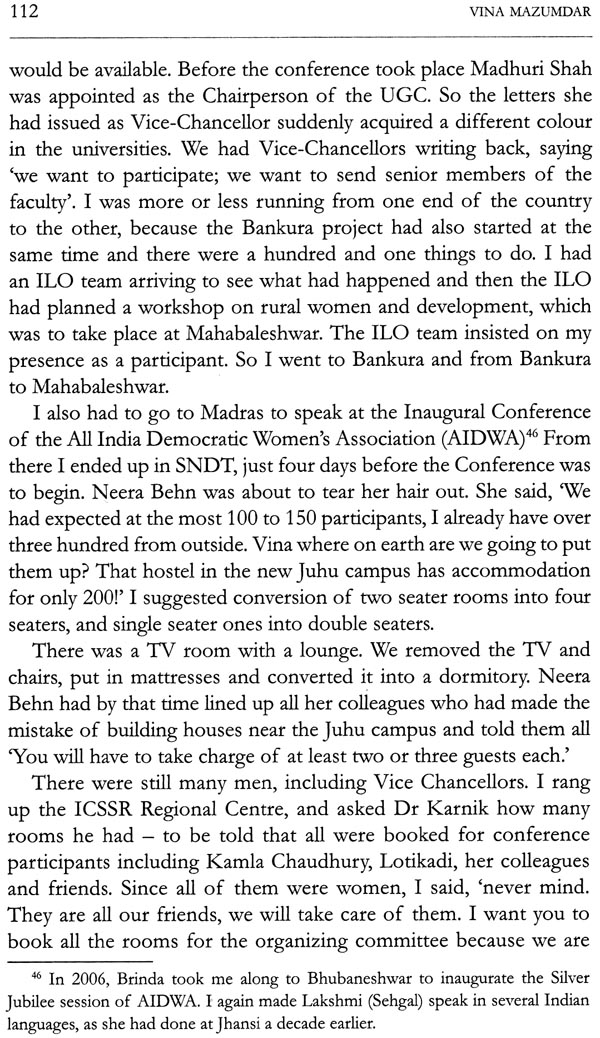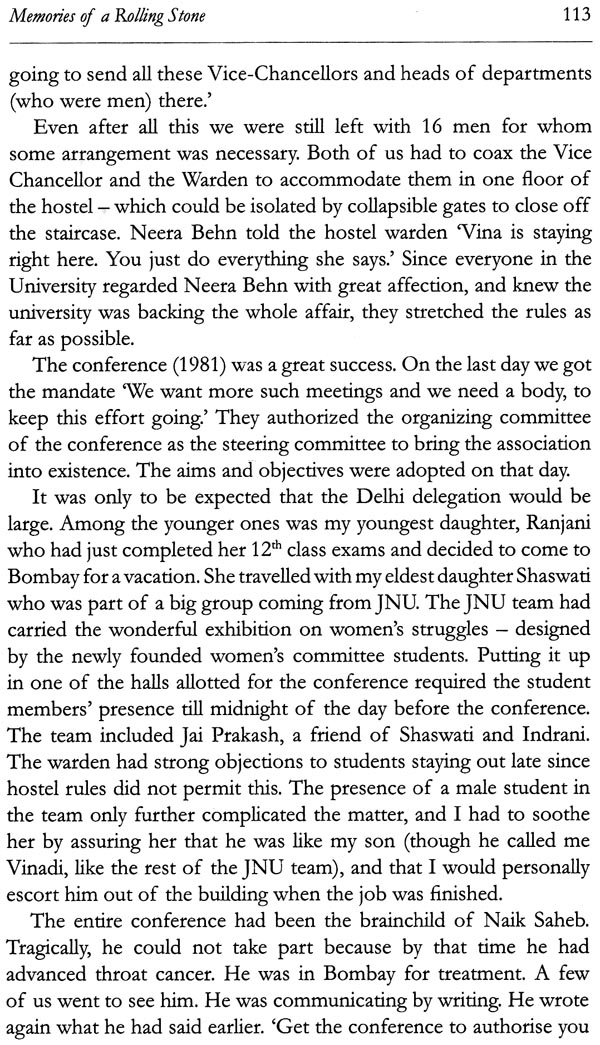
Memories of A Rolling Stone
Book Specification
| Item Code: | NAS256 |
| Author: | Vina Mazumdar |
| Publisher: | Zubaan Publications |
| Language: | English |
| Edition: | 2010 |
| ISBN: | 9788189884529 |
| Pages: | 192 (18 B/W Illustrations) |
| Cover: | PAPERBACK |
| Other Details | 8.50 X 5.50 inch |
| Weight | 260 gm |
Book Description
This endearing, witty, self-deprecating memoir documents the life of one of the leading figures of the contemporary Indian women’s movement. Vina Mazumdar, one of the key researchers and writers of the landmark report of the Committee on the Status of Women in India, Towards Equality, here documents her early life, her gradual politicization in a household of liberal, educated Bengalis, and her involvement in women’s issues and the women’s movement. Brought up to be outspoken and frank, Vinadi, as she is affectionately known, began by becoming involved in university-led politics in Calcutta. Marriage and a young family did not prevent her from pursuing her studies and her career, in the teeth of considerable opposition from relatives but with constant support from her mother. On her return to India from Oxford, Vinadi first moved into the field of education, and then, with her involvement in the research and writing of Towards Equality, was catapulted into the women’s movement. An activist and institution builder, Vinadi set up the Centre for Women’s Development Studies in Delhi, one of the leading research and outreach institutions for women in the country. In this rare memoir, Vinadi provides a rich history of the contemporary women’s movement in India.
Vina Mazumdar is an activist, institutional builder and an academic. She was member secretary of the Committee on the Status of Women in India which produced the landmark report Towards Equality in 1975. She is the founder Director of the Centre for Women's Development Studies, New Delhi and founder secretary of the Indian Association for Women's Studies. She is currently National Professor in Social Sciences.
My passport describes me as a social scientist, but very few know me today as one. I am better known as a ‘woman activist’, ‘a feminist’, "a trouble maker’, and a ‘gender specialist’ in undefined areas. Of all the descriptions that attach to me, however, the two I like best are: ‘recorder and chronicler of the Indian women’s movement’, and ‘grandmother of women’s studies in South Asia’.
I have been a teacher of political science with an abiding interest in educational reform. Quite early on, I abandoned my chosen vocation of teaching to become a bureaucrat concerned with administering grants and planning the reform of higher education and its institutional mores. This shift from teaching to administration happened twice during my career. The first time was to the University Grants Commission. The second time was after a short spell of teaching in Berhampur University in Orissa. Though I seldom fail to cite the late Professors D.S. Kothari! and J.P. Naik? as my gurus, no one today thinks of me as an ‘educationist’. I’ve long been associated with two organizations: the Indian Association for Women’s Studies (AWS) which I helped to found, and which has been officially acknowledged as an educational organization, and the Centre for Women’s Development Studies (CWDS) of which I was founder Director, and which is still struggling for similar recognition despite being part of the family of institutes supported by the Indian Council for Social Science Research.
Born in 1927, my life has straddled nearly three quarters of the 20" century and a decade of the 21%. I have memories of India before and after independence, the world before and after the Second World War and of being personally involved in the ‘second wave’ of the Women’s Movement in India.
I was born in a middle class family in Bengal — as the youngest of five children. The three brothers came first, then Didi (Vani) — my sister — and then me. My pet name was Khuku. Didi always worried much more about me than the brothers. I have taken the title of this volume from one of her favourite descriptions about me. Worried by my frequent job changes, she scolded me for becoming a rolling stone (I changed seven jobs in fourteen years!). And then, at the age of 53, with an unbroken record of 30 years of service in government funded public institutions — and three (out of four) children who were still students — I started the Centre for Women’s Development Studies with no guaranteed resource support. To my sister this was a gamble, for which I had no training. Fortunately, she lived long enough to see that the gamble had paid off.
No one in my family ever thought of recording the story of their life — not even my father or my uncle, both of whom contributed substantively to India’s development, materially and culturally. 1 resisted the idea for many years. The decision to do so in my 81" year was the outcome of two events: (a) my increasing realization of the younger generation’s ignorance of the historical origin and character of Indian feminism, and (b) the opportunity provided me to set this right to some extent, by the Human Resource Development Ministry, with my appointment as National Research Professor of Social Sciences in 2006. Fortunately I had some recorded memory in three documents that I could use as sources. One was the transcript of along interview by Anita Anand for the Women’s Feature Service recorded sometime in the 1990s. The second was a paper written for a volume on women published by the National Book Trust, in the year 2000. The third was the story of the Bankura women which I wrote some years ago. The Bankura Project which the CWDS describes as ‘action research’ began as an experiment in organizing landless peasant women to improve their strength and access to development resources. Over the years the women changed into my gurus — demonstrating courage and political leadership which taught me humility.
History was always my first love. I hope other lovers of history will find this record of my memories of some interest. Basically this volume remains a tribute to the memory of the period and the persons who influenced the course of my life. I have mentioned only a few of them in this record — my parents and some of my teachers. As for the 10,000 plus women who became my gurus from the 1970s onwards — India’s forgotten majority — I have tried to fight their battles through the twin movements of Women and Women’s Studies.
**Contents and Sample Pages**
